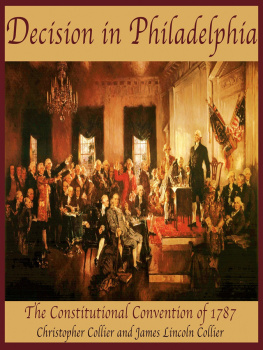Two hundred years ago, in May of 1787, several dozen delegates - all of them men, all of them white, all members in good standing of the American political establishment, all of them men of property - slave owners, plantation owners, gentlemen farmers, businessmen, lawyers, bankers, and shippers - gathered at the State House in Philadelphia, where, in the next several months, they wrote the Constitution of the United States of America, which has served as the foundation of the country ever since.
They were attacked at once for being counterrevolutionaries who took a radical democratic revolution and turned it into a society dominated by the rich and powerful; who took thirteen, fine sovereign states with reputable local governments and transformed them into one powerful nation governed by a remote, overbearing central government.
They were attacked immediately by such radical leaders of the Revolution as Patrick Henry and by farmers and others on the edge, or outside, of the settled society of the eastern seaboard. And they are being attacked still, both by critics of the left who argue that ordinary people are excluded from real power in the government and do not live under a just system and by critics of the right who argue that strong central government has stifled liberty.
To be sure, the framers of the constitution have not only been attacked. In the late nineteenth century, they - or those among them, at least, who had been the champions of a strong central government - were regarded almost as demigods who had foreseen the future and provided it with a form of government that was the envy of humankind. Histories of the Constitutional Convention and biographies of the framers could not find words warm enough to praise the founding fathers.
Those among the framers who had opposed a strong central government and argued for the sanctity of the states did not fare quite so well in those years: Before the Civil War , they were generally regarded with respect; after the war, they were seen as ignorant, bigoted, demagogic states rights men, and they were treated with suitable disdain by the historians and statesmen George Bancroft , Woodrow Wilson , and most others who wrote about the constitution then.
In the early twentieth century, during the Progressive Era , the perspective shifted again. The men who had promoted a strong central government came under attack as big-money capitalists who had subverted a democratic revolution. The states rights men who had opposed them were seen as good democrats. Or, on the other hand, as Charles A. Beard argued in an influential study of the convention, all the framers could be seen as capitalists: The centrists were those whose money was in investments, manufacturing, and trade; the states rights men owned land; the convention was a struggle between two kinds of property owners to find the best sort of protection. Historians revisited the biographies of the framers and found that even the best of them were deficient in public virtue and personal integrity.
Since Beard, most historians have written of the convention as a struggle among men with different sorts of economic interests. Merrill Jensen , Forrest McDonald , and others have all gone over Beards work and found fault with it - they demonstrated, for example, that the central-power men did not own more in the way of government securities than the local-power men, that the local-power men were not all democrats, that the small farmers overwhelmingly supported ratification of the constitution, although it was said to go against their interests. And yet, even if Beard is found wrong in most of his evidence, his fundamental view is still accepted - that the framers of the constitution were motivated by economic interest. And most of us find ourselves taking such a point of view largely for granted. We all believe people are deeply motivated by class interest and by economic appetites.
Indeed, these analyses of the convention have been especially illuminating. They have dispelled the founding fathers aura of public virtue to reveal quite human men, pursuing their fortunes as well as their fame, looking for the main chance in a land investment, the interest on public loans, a bit of an edge in the navigation laws - interests the delegates sometimes shared as a class, sometimes had as their own personal angle. The story of the convention has become much more complex and interesting and persuasive as it has passed through the hands of all these historians.
Even so, in the end, these schools of interpretation fail to convince in one common respect: They all tend to simplify the particularities in search of generalizations - and, in the process, miss the essence of what occurred at the convention. They all come down to a view that the framers of the constitution belonged more or less to one class, and they had more or less one common set of intentions - or one set of biases or goals or interests - and that their labors in the summer of 1787 can be seen as the careful codifying of that set of common intentions into a body of laws.
And yet, when one actually looks at the day-to-day debates during that hot, humid, insect-ridden summer in Philadelphia, such a view simply wont hold up. Far from there being one set of intentions, there were as many intentions as there were framers. What one sees, in fact, is a group of men who, despite their common background and broad class interests, had myriad diverging appetites, ideals, and interests. They set about disputing with one another, wrangling, losing patience, lashing out, attacking one another, accusing one another of ignorance and inconsistency, or worse, of lack of principle and even of treasonous intent; erupting in anger or simply packing up and leaving town altogether, never to return; warning that certain provisions only could lead eventually to civil war or bring down upon the country some even more calamitous judgment of heaven. By the end of the convention, none of the delegates, not one, was entirely happy with the constitution they had written. Some refused entirely to sign the completed work, and those who did sign signed in varying degrees of reluctance, dismay, anguish, and disgust.
What one sees, indeed, is a group of men forced by all their differences into a succession of vexing or detestable compromises, a group of men forced, in one argument after another, to fall back to general principles in order to buttress their positions to embrace general principles that finally, by the sheer force of logic, would have to promise liberty and justice for all.
To be sure, these compromises did not at once eliminate slavery or give the vote to women or embrace the destitute. But the principles to which the delegates forced one another to resort placed the country on a course from which, so long as it adhered to the constitution, there could never be a turning back: a course to an increasingly open form of government, open to both sexes, to all races, to the poor and the politically oppressed of other countries; to the free exercise of speech and press and religion (including the freedom to believe in no God); to the guarantee of due process equally to all; to ensuring that the system not be distorted by great concentrations of power in large business concerns, or in the military, or in the office of the president; to an extreme caution about engaging in foreign adventures; to a due regard for the good opinion of humankind. No wonder these men of property, hoping (in their least pure moments) to give themselves some advantage in the new government, left the convention in such deep anguish.
These days, of course, we are all less enamored of the nineteenth-century great-men interpretation of history, less chagrined when human beings turn out to be merely human. The men who framed the constitution may have been great men, but we tend to find them even more interesting now as recognizable human beings who were shaped by history as much as they shaped it, as exemplars of their class and of their history, as men representative of what they themselves often referred to as the genius of the people - that cumulative body of knowledge and intuition formed by living for centuries under the legacy of the Magna Carta and the rule of common law.

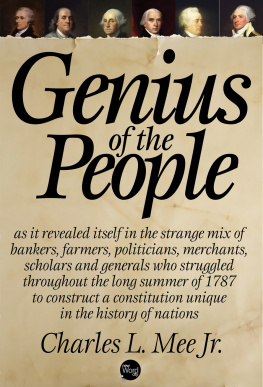

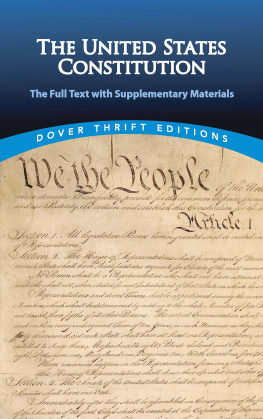
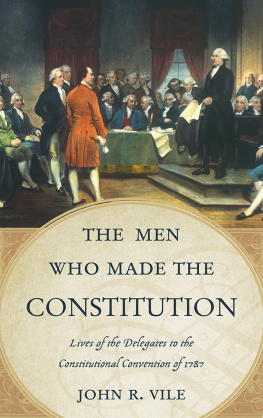
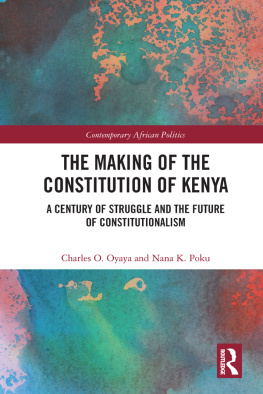
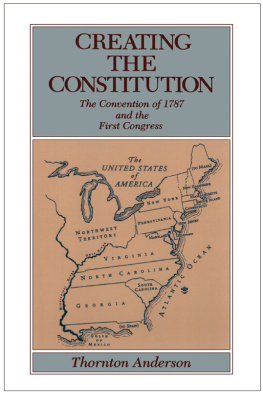
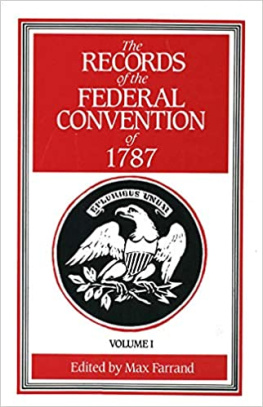
![Jay John - The Federalist : a collection of essays, written in favour of the new Constitution, as agreed upon by the Federal Convention, September 17, 1787. : In two volumes. Vol. I[-II.]](/uploads/posts/book/76130/thumbs/jay-john-the-federalist-a-collection-of-essays.jpg)
